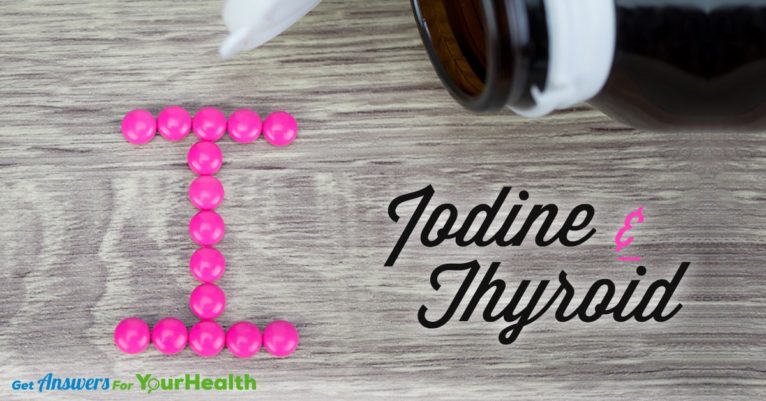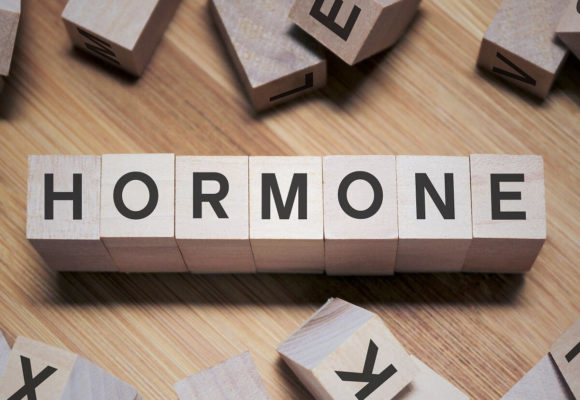1) Grab a FREE copy (Value $14.95) of one of my books Thyroid Symptom Overload
Just pay shipping $7.95 for any US orders. Or, if you want to pay full price plus shipping, order from Amazon :)
2) Take our Thyroid Quiz today and find out what "Thyroid Type" you have
This quiz will help you quickly discover where your symptoms are stemming from.
3) Join Our Thyroid Advocate Membership Site - Natural Thyroid Academy
FREE for a limited time. No credit card required.
4) Work with me and my team privately
Schedule your FREE 15 minute phone consultation and we can find out the best way to help you specifically.
Can we survive without food? Absolutely not! However, food is worthless unless thyroid hormones metabolize it and save the day. A little bit of food can give us enormous energy, all thanks to thyroid hormones. Tyrosine (T4) and triiodothyronine (T3) are the most important hormones. And for their synthesis, iodine plays the key role. Even T4 and T3 got their names literally for containing four and three iodine residues, respectively. In addition, is the thyroid gland where more than two third of iodine’s store is located.
Synthesis Of Thyroid Hormones:
Thyroid hormones are produced by the thyroid gland for normal growth and development, metabolism, proper heart functioning and temperature regulation. As for the manufacturing of any material, a factory needs machinery to work, raw material to be processed and a control to ensure proper working. This makes a triangle of three important factors for the product to be formed. Same is the case with the thyroid.
The thyroid gland is the machinery used to synthesize hormones. Iodine serves to be the raw material for the production of thyroid hormones. The pituitary gland controls the thyroid by releasing TSH (thyroid stimulating hormone). TSH acts like a master, as it stimulates the thyroid to produce hormones. When the pituitary senses production of enough hormones, it decreases the secretion of TSH through negative feedback. Consequently, the thyroid signaling for hormone production also decreases. If any bar of the triangle collapses, it disturbs its whole geometry. By now, you must have the idea that without iodine, synthesis of thyroid hormones is not possible.
Iodine Deficiency Causes Hypothyroidism:
Iodine deficiency results in underproduction of thyroid hormones. This is termed as hypothyroidism which manifests as unexplained weight gain, extreme fatigue and lethargy, cold intolerance, constipation, dry skin and more.
Before the understanding of iodine importance for the synthesis of hormones and the steps taken for its adequate supply, hypothyroidism was a very prevalent disease. In the early eighteenth century, goiters (enlargement of thyroid) associated with hypothyroidism was an endemic condition. Its close association with people having an iodine deficient diet opened the gate to the discovery of the importance of iodine for thyroid hormones. Measures were then taken to ensure adequate supply of iodine to everyone. Even now, iodine deficiency is the leading cause of hypothyroidism. But fortunately, owing to the discovery of thyroid hormone production by the use of iodine as a basic ingredient.
Iodine Is Crucial For Your Baby Yet To Be Born:
For the normal development of the brain and growth of the fetus in the womb, iodine is a crucial microelement. As thyroid hormones are responsible to promote growth and development of the brain during fetal life, iodine deficiency negatively impacts the fetus by impairing the synthesis of these hormones. Iodine deficiency is believed to be the most common preventable cause of neurological impairment, both before and after the birth.
Main Source Of Iodine:
Iodine is important for normal synthesis of thyroid hormones. It is often added to common table salt to ensure adequate supply of iodine to every individual. Iodine is vital for thyroid hormone production and its importance cannot be denied. Yet, it is required only in traces to prevent thyroid deficiency. As mentioned earlier, the most common source of iodine is common table salt. It is iodized with about 1 part sodium iodide to every 100,000 parts of sodium chloride.
Is Excess Iodine Beneficial For You?
There is no doubt that iodine intake is crucial for the normal function of the thyroid gland. But the question is how much? Surprisingly, too much iodine intake can be as life threatening as reduced iodine intake. Although it seems beyond logic, yet it is not. The reason behind excessive iodine causing hypothyroidism is the body’s natural responses.
Basically the working of thyroid gland is controlled by pituitary gland through releasing TSH (thyroid stimulating hormone). When iodine is greater in quantity than required by the body, the pituitary gland senses it. As the body is already making enough thyroid hormones, the pituitary gland decreases its stimulation on the thyroid to work by releasing less TSH. This is done in anticipation of the increase in the synthesis of thyroid hormones because of elevated iodine levels. In turn, it causes underproduction of thyroid hormones, despite of having enough iodine supply.
Role Of Iodine For Thyroid Patients:
Iodine is a vital element for thyroid hormone synthesis and can also be used to help with both hypothyroidism and hyperthyroidism.
- Treatment of hyperthyroidism:
Hyperthyroidism is the excessive production of thyroid hormones, beyond the normal range, that causes destructive effects. Hyperthyroidism clinically manifests as weight loss, anxiety, rapid heartbeat, diarrhea and heat intolerance.
As a treatment, Iodine is given in large quantities greater than 6mg per day. It lowers the thyroid level by Wolf Chaikoff response, as explained earlier. By this process, elevated iodide levels limit the uptake of iodide by thyroid cells inhibiting the formation of hormones. However, this effect is transient and resumes after adaptation; rendering it useful only in treatment of cases like temporary control of hyperthyroidism prior to thyroidectomy (removal of thyroid gland surgically).
- Treatment of hypothyroidism:
Hypothyroidism is the insufficient production of thyroid hormones. Worldwide the most common cause of hypothyroidism is dietary deficiency of iodine. (Although in developed countries, autoimmune conditions predominate). As a treatment, iodine is given in adequate amounts around 1mg per week for the normal biosynthesis of thyroid hormones (Guyton and Hall, pg. 907).
How to level out too little iodine?
If your body does not having enough iodine intake, it can be a problem. To overcome the deficiency of iodine, there are a number of steps you can take.
- Iodine supplementation
- Topical iodine
- Diet
- Vitamins
- Medication
Conclusion:
Iodine is required for the normal synthesis, storage and release of thyroid hormones. Iodine is required only in minute quantities within a specific range. Above or below the range decreases hormone production. Isn’t it interesting that too much iodine causes hypothyroidism and too little iodine does the same? Therefore, if you have been diagnosed by your medical doctor with any thyroid problem, consider the benefits of iodine supplementation.!
References:
http://www.vivo.colostate.edu/hbooks/pathphys/endocrine/thyroid/synthesis.html
https://www.ncbi.nlm.nih.gov/books/NBK285550/
http://www.pathwaymedicine.org/thyroid-hormone-synthesis
http://www.optimox.com/iodine-study-14
http://www.nejm.org/doi/full/10.1056/NEJM199011013231821#t=article
http://emedicine.medscape.com/article/122714-overview








